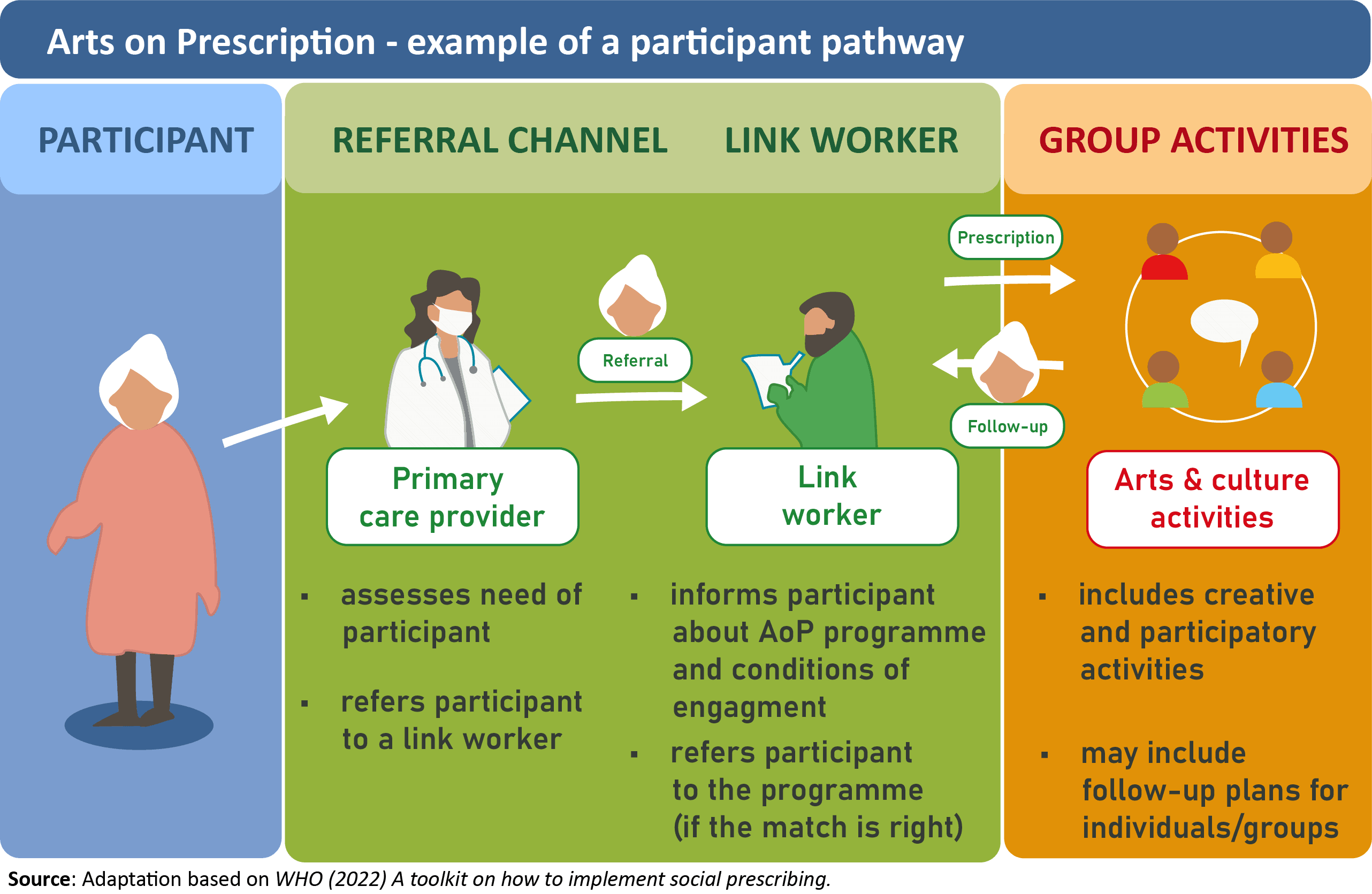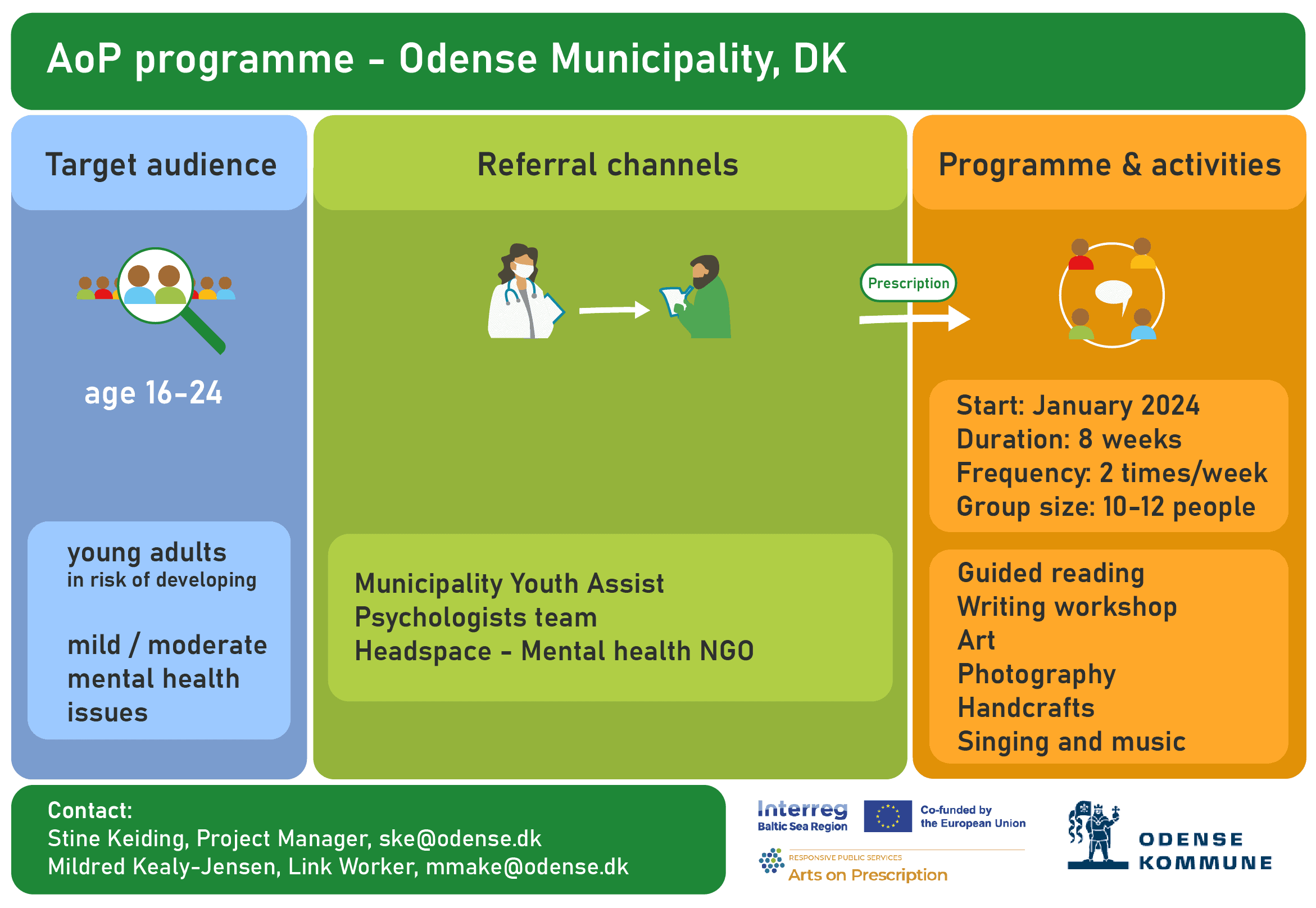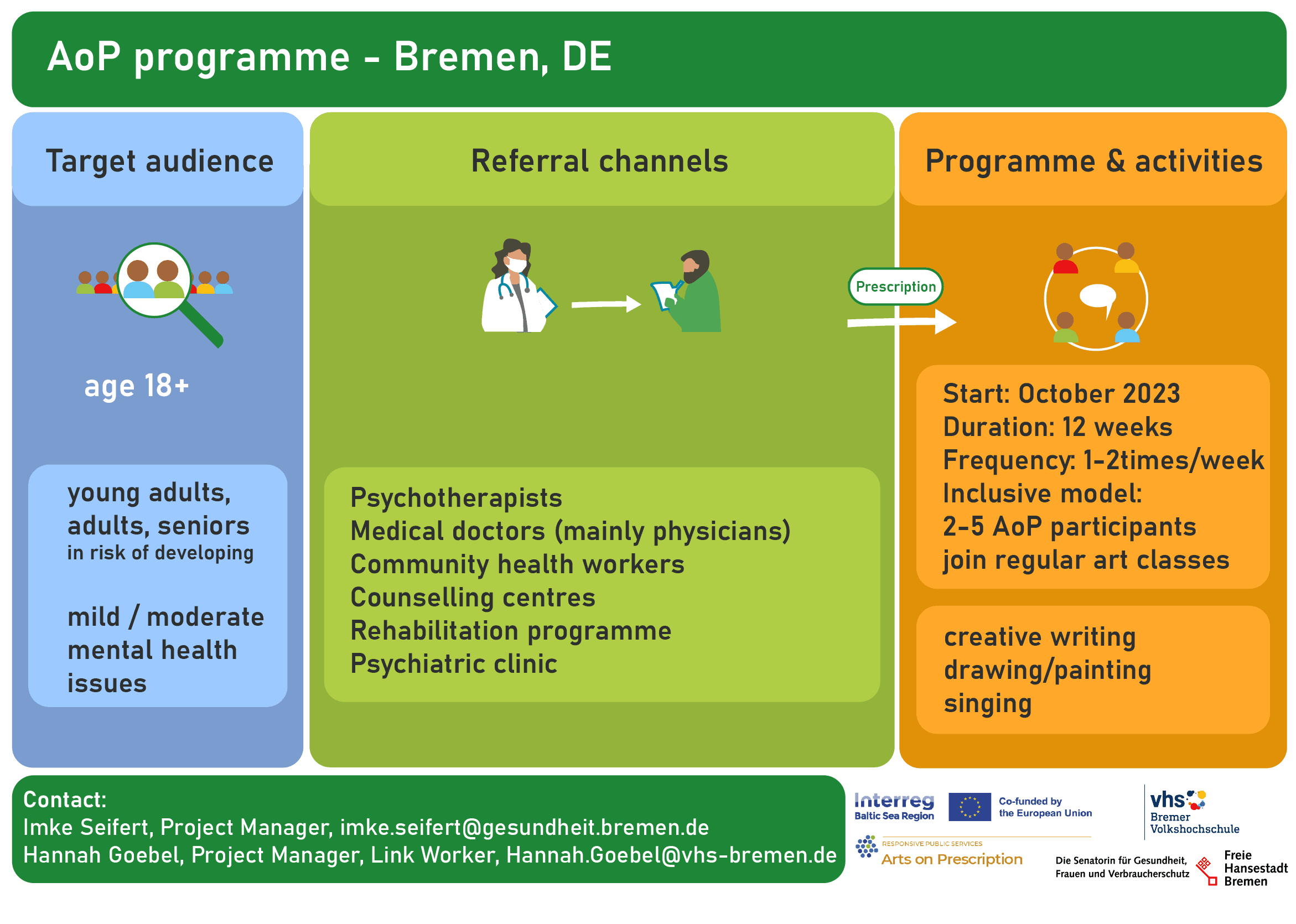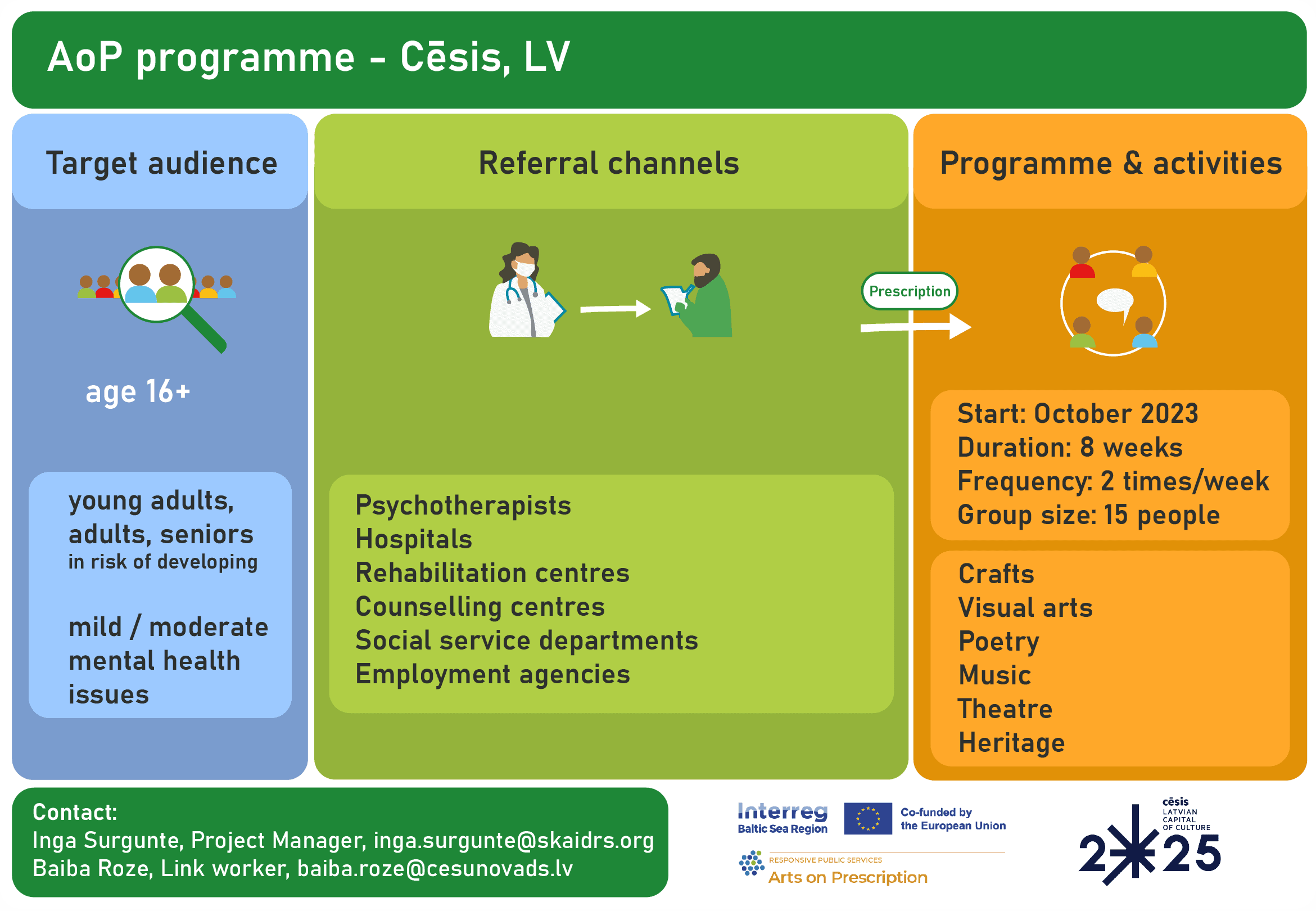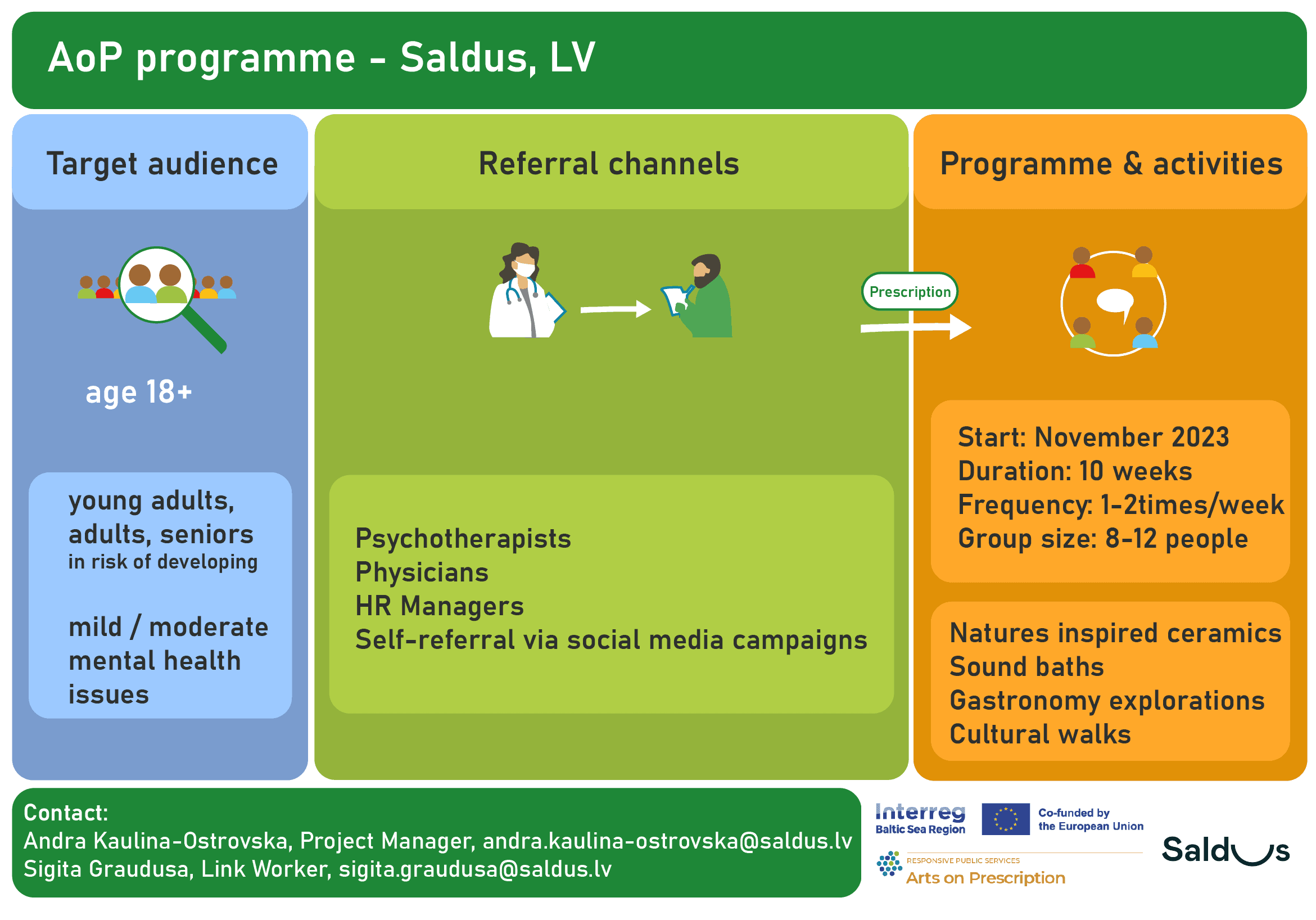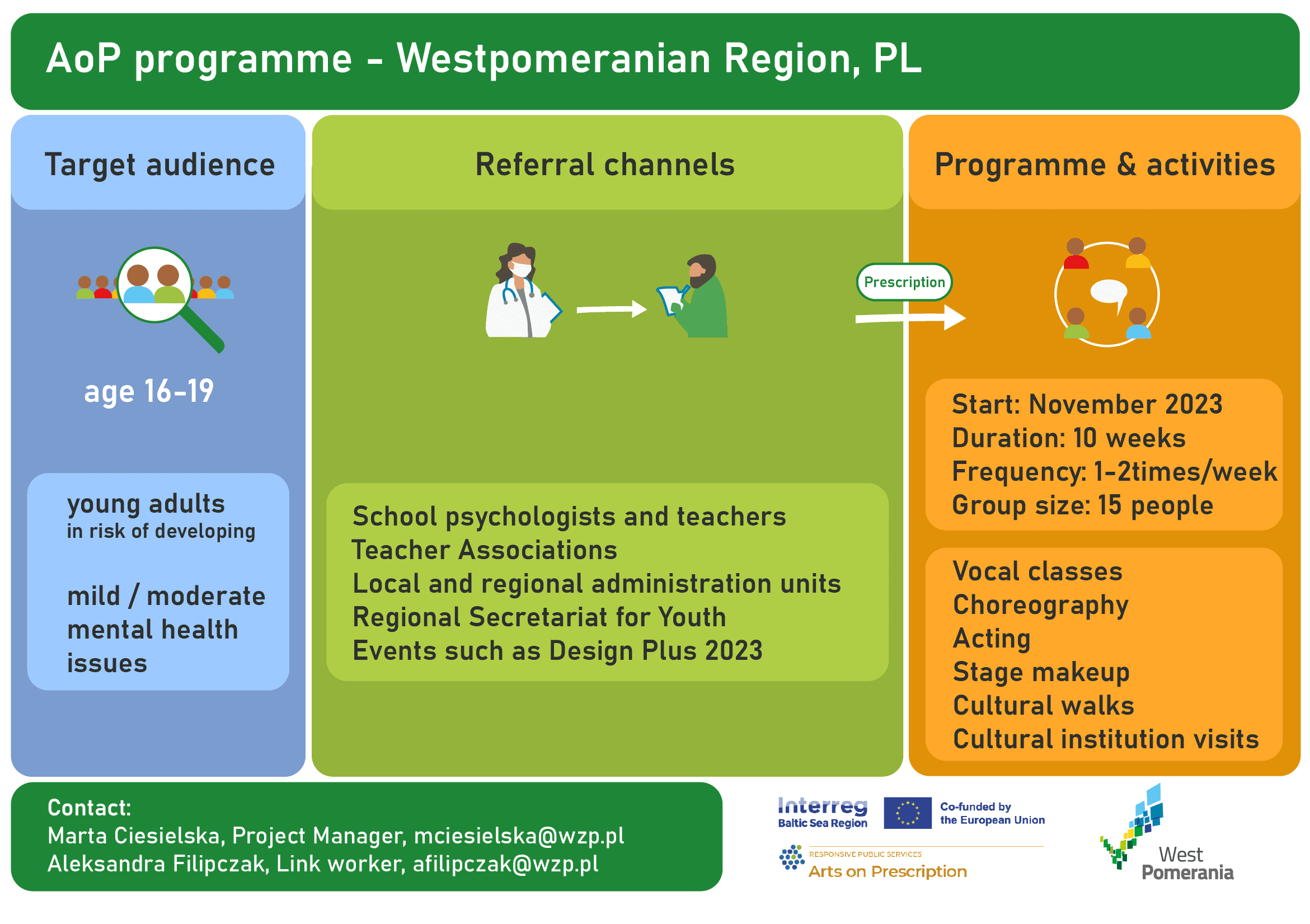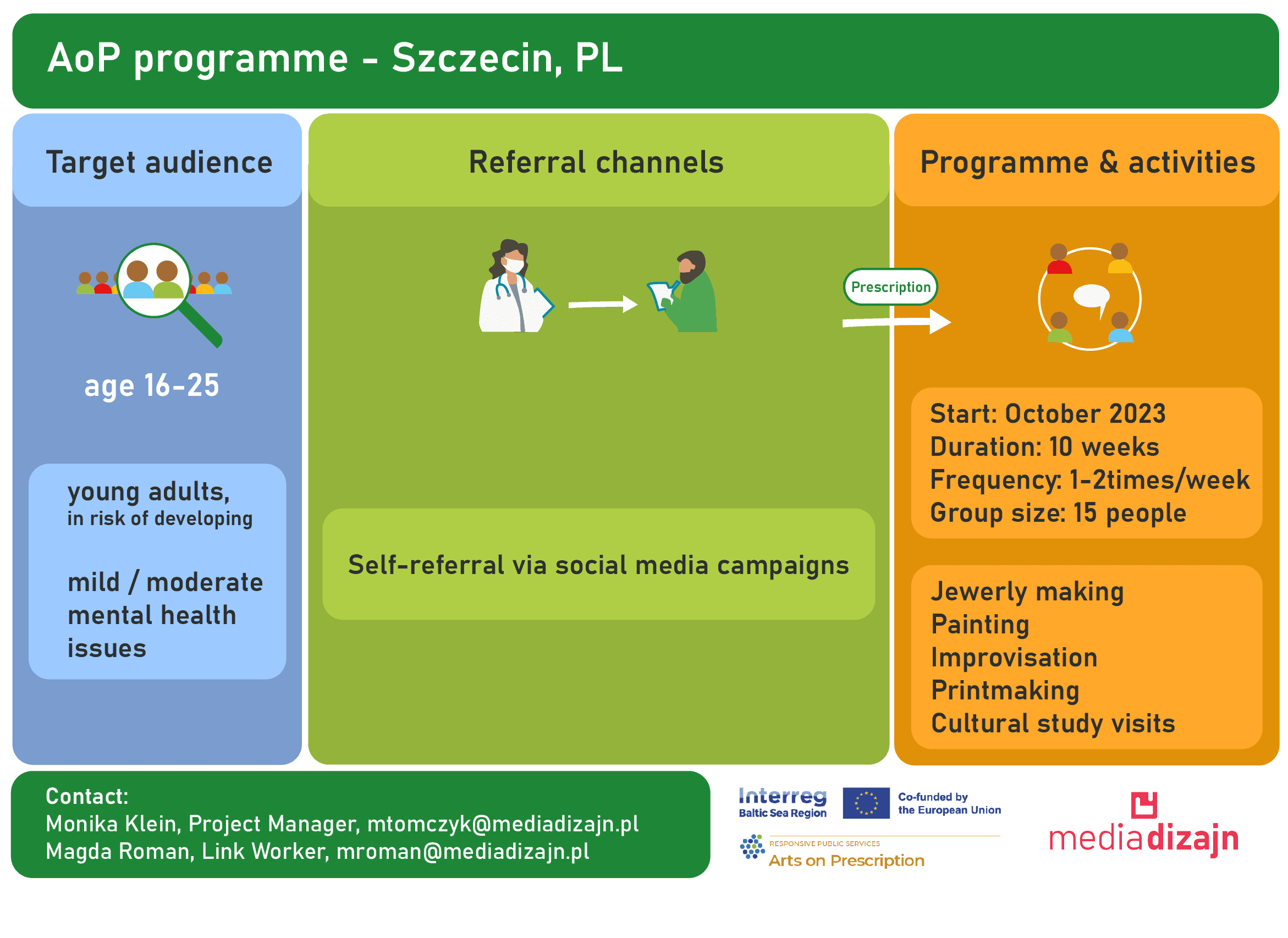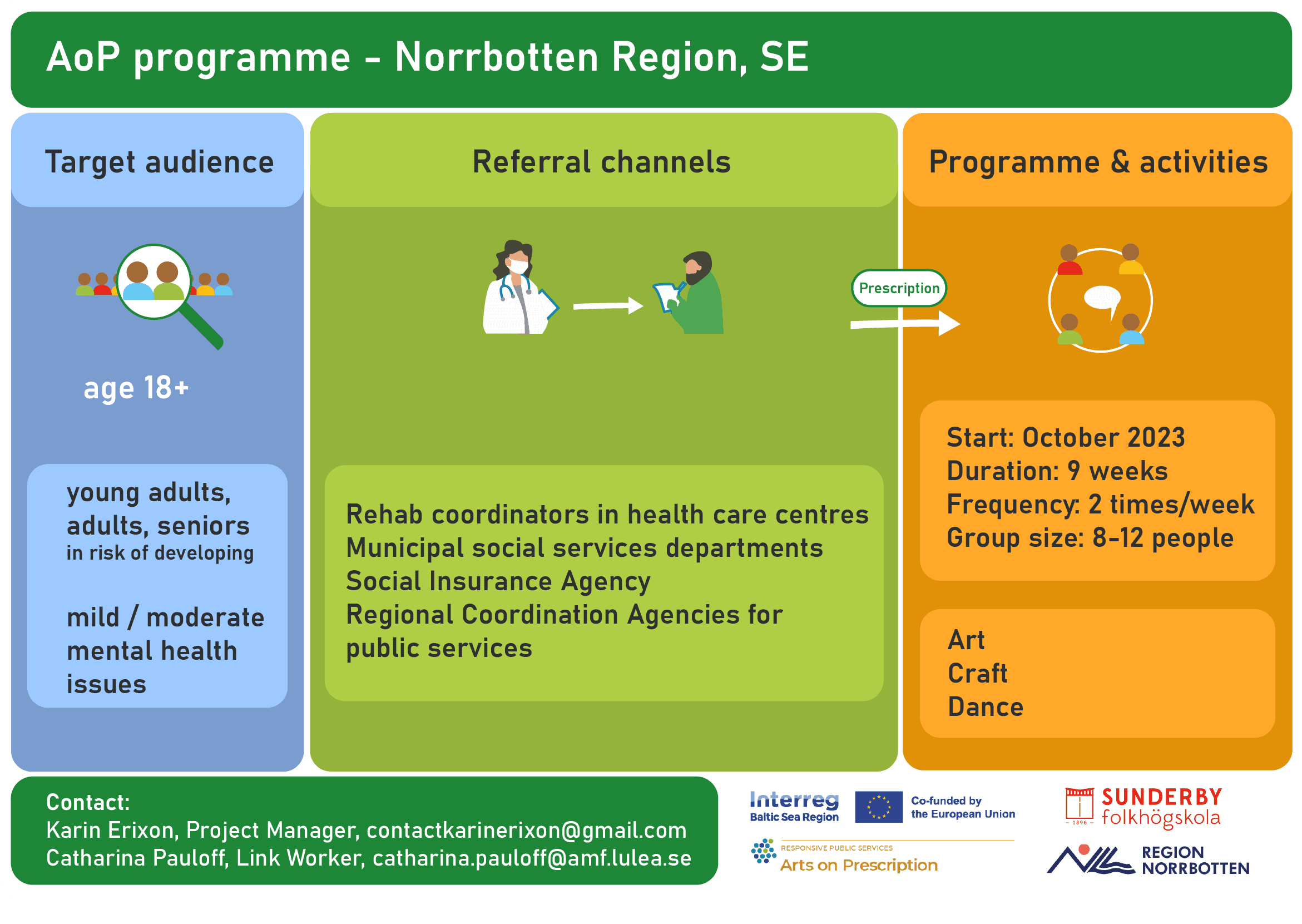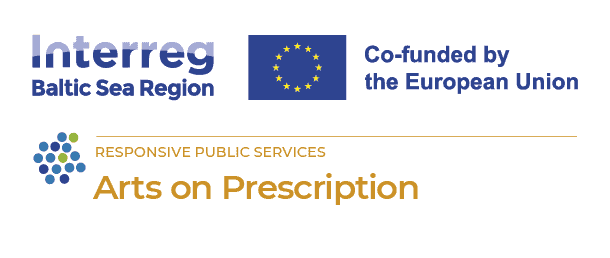
Arts on Prescription Programmes in Denmark, Germany, Poland, Latvia and Sweden
19 October 2023
The basic idea behind the Arts on Prescription (AoP) concept is that people dealing with mild to moderate mental health problems such as stress, anxiety or depression as well as those at risk of developing such conditions (e.g. due to loneliness) get a prescription not for medicine or therapy, but for taking part in creative and participatory activities in group settings. Referral channels, such as primary health care providers or social workers, have the opportunity to refer participants to a link worker who is a primary contact point for the participants (see graphic below: AoP concept – example of a participant pathway). While the recruiters make the initial screening of individuals who may be suitable for AoP programmes, the link worker will interview the potential participant and give a thorough introduction to the programme in order to assess, if the AoP Programme is the right offer for the individual. The link worker could be a healthcare or cultural professional working in a public municipal or regional department, e.g. health or social services or a private organisation such as a NGO.
Arts on Prescription is a concept that has already been tested as small-scale programmes in the UK, Sweden and Denmark and has been proven to have a positive effect on mental health. Moreover, Arts on Prescription programmes can provide opportunities to reduce the financial burden on health systems and helps to provide alternative, cross-sectorial and non-therapy approaches in health service provision.
There remains a lack of an EU-wide perception and knowledge on the planning and implementing of such a relatively new concept and how to integrate it into regional health care systems. In particular, public authorities are challenged by the insufficient collaboration between culture and health sectors, a lack of knowledge on how to set up, organise and evaluate an AoP programme and the need for long-term financing.
To overcome these challenges, this Interreg Baltic Sea Region project has developed an Arts on Prescription programme model that is based on state-of-the-art evidence and experience. The project partners are currently testing the model concept and adapt it to their local context and public health systems within the involved piloting regions. More insights into the different Arts on Prescription pilot programmes can be found in dedicated news stories on this website.
Furthermore, an information package with an information flyer, poster, an upcoming brochure and a four-module train-the-trainers programme (partly included in the online guide – see below) are and will be further provided to decision makers, programme coordinators and link workers to explain the value of AoP and to guide them in how to set up an organisational framework, and how to facilitate and evaluate an AoP Programme. An upcoming online practitioners guide will include how-to-guides, fact sheets, lessons learned and audiovisual guidance for link workers, culture and arts facilitators, and decision-makers on various aspects of setting up an Arts on Prescription programme.
Public authorities and cultural and health institutions started their second out of three piloting phases in April 2024, in which the following seven Arts on Prescription programmes will be tested and evaluated (adaptations of the programmes between the 3 piloting cycles are possible):
Interactive map showing pilot locations. Use the arrow keys to move the map view and the zoom controls to zoom in or out. Press the Tab key to navigate between markers. Press Enter or click a marker to view pilot project details.






